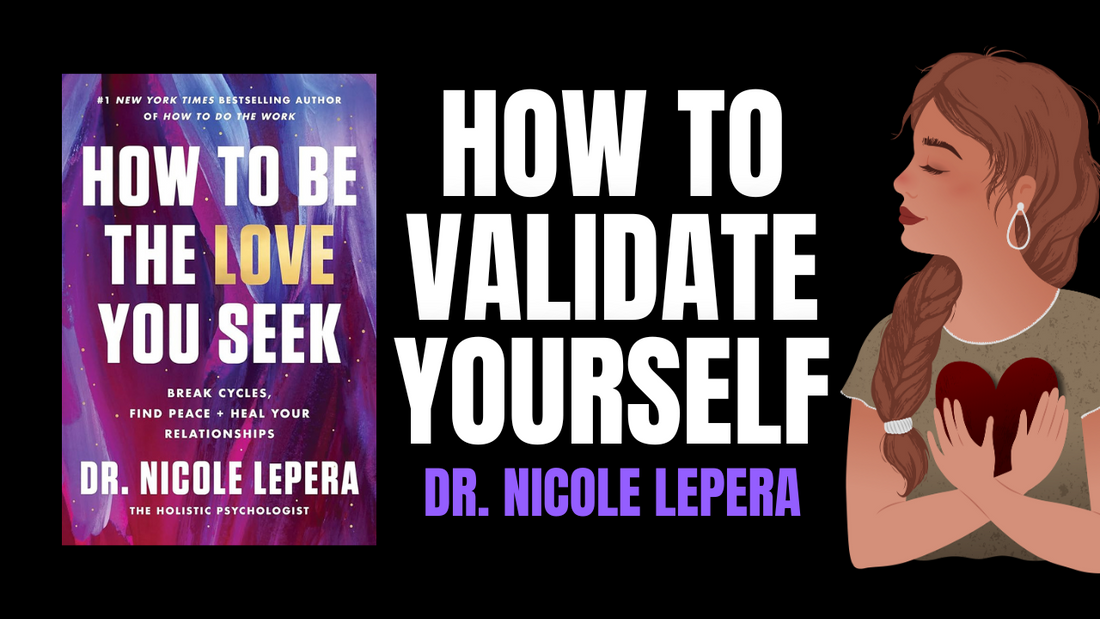Most notably, Dr. LePera outlined how an unattuned caregiver often sets the stage for a lifetime of seeking external validation. These insights were so fantastically powerful that I felt compelled to share them with you here today.
The Subtle Absence of Presence
In exploring the roots of emotional development (or lack thereof), Dr. LePera emphasizes that not all parental shortcomings come in the form of overt abuse. Often, these shortcomings manifest as a simple lack of presence.
Parents may be physically there but emotionally distant, failing to engage with their child's emotional needs. This lack of emotional attunement can leave children feeling fundamentally unsafe about being themselves, as they were never validated for who they are, only for the things they did that pleased their primary caregivers.
According to Dr. LePera, children raised in such environments often develop a habit of scanning their surroundings for cues about how others perceive them. This behavior turns validation into an external quest - every decision, every action is second-guessed, an idea that was wonderfully highlighted in the lyrics of 90s Alternative band Blind Melon:
I'll take a left and I'll second guess into total mess.
Nicole LePera's Journey to Self-Validation: How To Validate Yourself In 4 Steps
1. Awareness: The Foundation of Change
According to Dr. LePera the path to self-validation begins with awareness. Without recognizing our internal dialogues and emotions, we remain blind to the very aspects of ourselves that require acceptance.
We can't accept what we can't see. - Nicole LePera
The first step then is to become acutely aware of our thoughts, feelings, and bodily sensations. This awareness forms the basis of all subsequent healing and growth. As spiritual teacher Don Miguel Ruiz wrote in the classic self-help book The Four Agreements:
Awareness is always the first step because if you are not aware, there is nothing you can change.
2. Acknowledging Our Needs and Wants
Dr. LePera highlights how essential it is for us to recognize and honor our authentic needs and desires. This step involves granting ourselves the freedom to embrace our true wants and needs without self-criticism or fear of judgment. By doing so, we validate our own experiences and feelings as legitimate and important, setting the foundation for genuine self-care and self-respect.
3. Resisting Self-Invalidation
The next step involves resisting the urge to invalidate the feelings and desires we locate within ourselves. Instead, we must refocus our attention on being present with our truths without judgment. Dr. LePera stresses that this process often isn’t about taking vigorous action, but rather about removing the layers of internal negativity that cloud our self-perception and lead us to invalidate our inner experience.
4. Celebrating Our Progress
Finally, it's vital to acknowledge and celebrate the moments when we successfully resist the urge to invalidate ourselves. Dr. LePera emphasizes the importance of recognizing how these small victories play a crucial role in reinforcing our new, healthier behaviors.
Each celebration acts as a building block in the development of a stronger, more resilient self-relationship, gradually establishing a new norm where self-validation becomes a natural byproduct of living with our most authentic self.
Cultivating a New Reality
The process of learning to validate ourselves is not about dramatic changes but subtle shifts in perspective and reactions. It's about unlearning the conditioning of seeking external approval and relearning how to trust our internal compass.
As we continue on this path, the moments of self-validation become more frequent and more natural, gradually shaping a life where we feel fundamentally safe and valued.
Dr. LePera's teachings not only offer a roadmap to self-validation but also a beacon of hope for those of us who have long relied on others to affirm our worth. By nurturing our ability to validate ourselves, we step into a world where our validation comes from within - robust and steadfast.
Listen To Dr. Nicole LePera Discuss How To Validate Yourself
Links & Resources:

